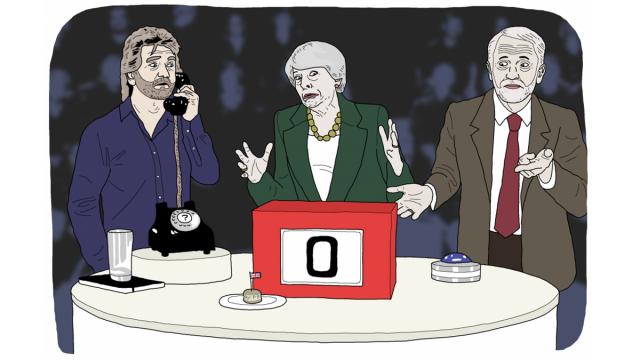
It's fair to say the United Kingdom is in a state of turmoil. With Prime Minister Theresa May’s proposed alternative to the dreaded no deal Brexit thrown out by a landslide vote a few weeks ago, Parliament is now frantically attempting to address the key issues preventing the nation from leaving the European Union at 11pm on March 29 with some kind of customs deal in place.
A vote of no confidence in the prime minister was also defeated, and mainstream media is bursting with warnings that U.K. residents will need to stockpile tinned food and medications in case of a no deal situation. But is this an apocalypse we can avoid?
Fears that Ireland will stand fast on its border claims are among the most pressing concerns still dogging the Brexit deal. Ireland insists on what is being referred to as a “backstop”, meaning that even in the event of a no deal decision, the country will still be able to keep its borders open for free trade.
“The Democratic Unionist Party (DUP) have said they’d be prepared to look at a Norway-style arrangement and a customs union if their concerns about the Irish backstop are allayed,” explained Angie Hobbs, a professor of philosophy at the University of Sheffield.
“Now I’m absolutely sure that neither the DUP nor the E.U. are going to do anything that is going to jeopardize the Good Friday Agreement because that is one of the most significant things that’s happened in UK politics for the good in the last 50 years, and that is not going to be put at risk,” she added.
Mike Galsworthy, the director of Scientists for the EU, told Occupy.com, “There are two levels to this. One level is the sensible pragmatic engagement with the EU and Ireland. The other is the jingoistic internal debate within the U.K. I fear the latter will steamroller the former.”
Many hold out hope for a second referendum on the U.K.’s departure from the E.U.
“I think it’s increasingly likely that we’ll have to see at some point,” said Galsworthy. “Any deal that is brought forward will increasingly only be seen to have legitimacy if it also has public support. Also any deal will likely get stuck in Parliament. I do think we’ll refight the fundamental issue in public.”
Hobbs agreed there is a clear need for a second vote.
“I don’t believe the original referendum met proper democratic conditions,” she said. “The veteran pollster Peter Kellen puts the chances of a second referendum at 50% and I’m inclined to agree. More and more people are coming to believe that the original referendum was skewed, with emerging revelations of illegal spending from the Leave camp."
"Maybe they will come up with some kind of Norway-style arrangement that will gain a majority in the house," she added. "But if they can’t, then it could be that the people’s vote is literally the only option left on the table.”
Some of the most important voices in the debacle, naturally, are those who will be affected by it the most: E.U. citizens living in the U.K. Thierry, a French barman, is despondent about his future.
“I’m French and I moved to London 10 years ago,” he told Occupy.com. “At the time, I saw the UK as a very open and tolerant country, where lots of different cultures and people can live together in peace. It was such a relief not to hear about the (far right party) National Front every day in the news, as we do in France. For a while, the UK seemed like a democratic paradise island for me.”
But his paradise did not last. Thierry went on, “The Brexit vote was very much a shock. It took me a while to get used to the concept of it. I have a feeling that the future of European people living in the U.K. was the very last priority during the process of negotiations.”
Nonetheless, Thierry said he is skeptical of the idea of holding a second referendum. “It would discredit the legitimacy of a vote," he added, which "would be adding confusion to confusion. I think calling for a general election would be a sensible thing to do in these uncertain times.”
For her part, Prime Minister May is adamant she will deliver the Brexit deal on schedule, announcing in Brussels last week: "It is not going to be easy. I'll be negotiating hard in the coming days to do just that. I am clear that I am going to deliver Brexit. I am going to deliver it on time."
The U.K. government website has even begun to issue warnings about how businesses and individuals must conduct themselves if the U.K. crashes out of Europe without an anchor. “Delivering a deal with the E.U. remains the government’s top priority,” insisted a recent press release. This has not changed. However a responsible government must prepare for every eventuality, including a no deal scenario.”











